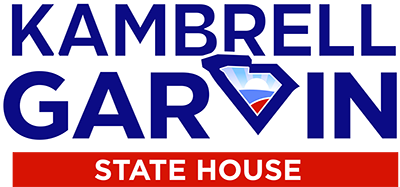The House of Representatives amended, approved, and sent the Senate H.4404, a bill enacting the “VETERANS NURSING DEGREE OPPORTUNITY ACT” as a means of both addressing the state’s nurse shortage and…
Read MoreLawmakers returned to the State House on January 14, 2020, to commence the second regular session of the 123rd South Carolina General Assembly. The House of Representatives approved S.11 and enrolled the bill…
Read MoreThe General Assembly concluded work on the regular legislative session, but lawmakers are scheduled to return later this month under the terms of S.785, a resolution EXTENDING THE SESSION OF THE…
Read MoreThe House of Representatives amended and gave second reading approval to H.3757, a bill establishing the WORKFORCE AND EDUCATION DATA OVERSIGHT COMMITTEE to support the mission of the Coordinating Council…
Read MoreThe House of Representatives amended, approved, and sent the Senate H.3020, the “SOUTH CAROLINA FETAL HEARTBEAT PROTECTION FROM ABORTION ACT”. The legislation establishes a prohibition on the performance of an abortion…
Read MoreThe House of Representatives will be on furlough during the week preceding Easter to lower operating costs and save taxpayer dollars. The House will reconvene on April 23. The House…
Read MoreThe House of Representatives amended, approved, and sent the Senate on H.4287, legislation establishing a protocol for EVALUATING PROPOSALS FOR THE SALE OF SANTEE COOPER OR OTHER ARRANGEMENTS in order to…
Read MoreThe House of Representatives approved and sent the Senate H.4243, a bill addressing PROFESSIONAL SPORTS TEAM INVESTMENTS. The legislation revises job tax credit provisions to allow a professional sports team…
Read MoreThe House of Representatives concurred in Senate amendments to H.3449 and enrolled the legislation for ratification. The bill enacts the “SOUTH CAROLINA HEMP FARMING ACT” to promote the cultivation and…
Read MoreThe House of Representatives amended, approved, and sent the Senate H.4000, the General Appropriation Bill, and H.4001, the joint resolution making appropriations from the Capital Reserve Fund, which together comprise…
Read More